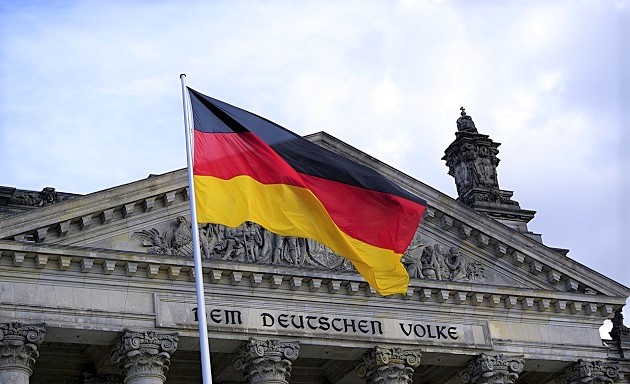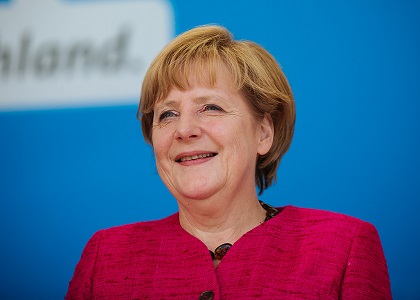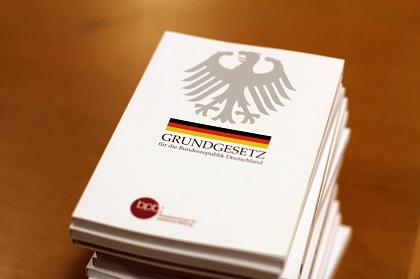The national election is on September, 24. “Evangelicals have the chance to help re-formulate basic principles of how we can live together peacefully”, says journalist Nicolai Franz.
 Germans will vote the new Bundestag federal parliament on September, 24.
Germans will vote the new Bundestag federal parliament on September, 24.
Two years ago, in 2015, Germany opened the borders to welcome more than 1 million asylum seekers. Now, a week ahead of the 2017 national election, the main political debate still revolves around how to respond to refugees and migrants.
According to all surveys, a new populist movement will win seats in the “Bundestag” (the federal parliament) after the September, 24 vote. Its influence, nevertheless, will be limited.
Everything seems to confirm that Angela Merkel (in power since 2005) will win again and become Chancellor for the fourth time.
Christians have tradintionally voted for the daughter of a Protestant minister, but what will happen this time? What issues do evangelicals care about most at the moment?
We asked German journalist Nicolai Franz (of Pro Medienmagazin).
 Nicolai Franz, journalist.
Nicolai Franz, journalist.Question. What is the general feeling in Germany, is Angela Merkel winning again?
Answer. All the polls point to a clear victory for the Christian Democrats (CDU/CSU), the party of Angela Merkel. When her socialist opponent Martin Schulz was elected candidate for the Social Democrats (SPD), the federal elections seemed to become a head-to-head race. Schulz is a widely respected politician who served as president of the European Parliament before running for chancellor. But this so-called “Schulz-effect” diminished more and more. Now CDU/CSU are leading polls by more than 10 percent.
Q. Will there be another coalition with the social democrats SPD?
A. Not necessarily. Merkel may have more options depending on the results of the Greens and the Liberals. The latter used to be the natural coalition partner for the Christian Democrats but since Merkel opened the CDU for green ideas there is a good chance we will see the Greens as part of the government.
If Merkel built a coalition with the Greens and the Liberals the Christian Democrats could possibly claim more ministers for themselves than in a coalition with the SPD. But it is not certain that the left wing of the Greens will be ready to work with the conservatives as well as there might be some reservations within the Liberal party.
Q. What have been the key talking points during the electoral campaign?
A. Refugees are without the doubt and by far the most important topic. In a recent TV debate between Merkel and Schulz, 43 of the 97 minute talk was determined by the refugee crisis – and how to get rid of rejected asylum seekers. It was surprising to me that neither Merkel nor Schulz seemed to show something of the human warmth and empathy for refugees that we know from 2015 and 2016. The atmosphere in Germany has changed.
 Surveys show Angela Merkel could win again. / Wikimedia
Surveys show Angela Merkel could win again. / WikimediaAnother, much less important topic is the future of mobility. Since the scandal of several car manufacturers that manipulated their cars illegally to pass emission tests the image of diesel engines has increasingly deteriorated. The Greens want to prohibit new combustion engines by 2030, the bigger parties CDU/CSU and SPD fear a loss of jobs in the automotive industry – a sector with more than 800.000 jobs involved.
The third point is the rising of the Alternative for Germany (AfD), a right-wing populist party comparable to Front National in France which is expected to gain about 8 percent of the votes.
Q. What about evangelical Christians, what are the topics they care about most? What could decide their vote?
A. Since the refugee crisis many German evangelicals have rediscovered the social concerns and humanitarian engagement of their grandfathers – not only by evangelizing refugees from mainly Muslim countries but also by charity.
But there are also evangelicals that consider Merkel’s refugee policy a serious mistake that will change Germany forever. Criminal offences committed by refugees – sometimes even already rejected refugees – seem to support their view. That’s one of the reasons why some people, including some evangelicals are in favour of AfD. Usually evangelicals tend to the Christian Democrats, but also to other democratic parties. This year, this could change, even if a large majority of Evangelicals will not vote for AfD.
Nevertheless: In less than two weeks from now, there will be most likely a party in the German parliament that at least tolerates far rights within their own circles. But, in comparison to other European countries, populist parties are only moderately successful in Germany at this point in time.
Q. has any survey showed what candidate evangelical Christians prefer? Is there any party that has specifically appealed to Christians to get their vote?
A. As for as I know there is no survey that explicitly asks evangelicals about their political opinion. Christian democrats, of course, emphasise Christian values and the Christian heritage of Germany and Europe. SPD and Greens maintain close relationships to mainline Protestant churches, especially in fields of social justice and integrity of creation. The AfD tries to court conservative voters by picking up conservative positions the Christian Democrats have represented for a long time.
 The German Basic Law.
The German Basic Law. Q. How have evangelical organisations communicated before the election?
A. Evangelical leaders in Germany are usually not directly political in sense of supporting a certain party. It would cause major irritations if evangelical spiritual leaders would officially support a certain candidate – as we know it from the USA. Since the Parliament introduced gay marriage months before the elections there is one polarizing topic less for Evangelicals to engage in.
Q. From your perspective, what are the key future challenges for Germany at the moment?
A. Germany has to be careful that society does not tear apart. People’s mistrust concerning media and politicians grows, especially in the Eastern part of Germany, the former German Democratic Republic.
Evangelicals have the chance to help re-formulate basic principles of how we can live together peacefully. The refugee crisis revealed a deeper question of identity: ‘Who are we?’ ‘Which values do we stick with?’ ‘Should everybody have the same values?’ ‘What happens, if not?’

Las opiniones vertidas por nuestros colaboradores se realizan a nivel personal, pudiendo coincidir o no con la postura de la dirección de Protestante Digital.
Si quieres comentar o